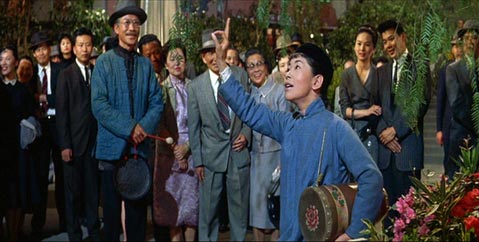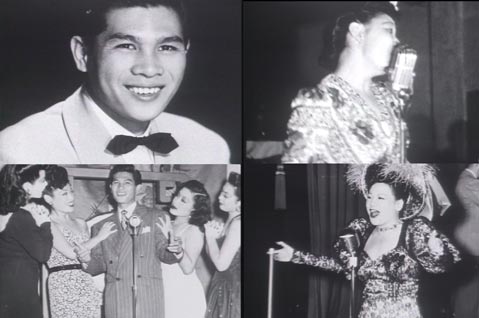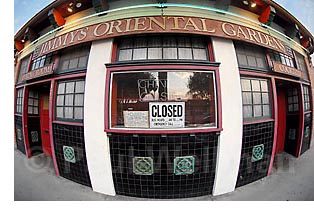Remembering Santa Barbara’s Chinatown
Film Series to Showcase East Canon Perdido Street’s Asian-American History

Although now dominated by El Presidio de Santa Bárbara State Historic Park and its associated Spanish lore, East Canon Perdido Street was once home to a flourishing community of Chinese and Japanese immigrants. This summer, to showcase the neighborhood’s once vibrant Asian heritage, the S.B. Trust for Historic Preservation is hosting “Sharing our Common Ground: Asian American History in Santa Barbara County,” a three-part film series designed to shake the dust off of this sometimes-forgotten slice of downtown history.
The series will screen four films over three Friday nights at the Alhecama Theatre, starting on July 9 with Flower Drum Song, a 133-minute romantic musical comedy by Rodgers and Hammerstein about a young Chinese girl coming to America for an arranged marriage. It continues on July 16 with the 15-minute Sewing Woman, an oral history-based account of a Chinese garment worker in San Francisco, and the hour-long Forbidden City, about the S.F. nightclub of the same name that inspired Flower Drum Song. On July 23, the final film is Picture Bride, a 95-minute look at a woman who leaves Japan in 1918 to marry a sugar-plantation worker in Honolulu. The films — which will each be accompanied by an introduction and relevant highlights from the Presidio Research Center’s collection of Asian-American artifacts from the area — are free for members of the trust, $5 for students, and $10 for everyone else.

“In 1890, the Chinese made up 10 percent of Santa Barbara’s population, and what was unique was that Santa Barbara was very open during a time when Chinese were not welcome in America,” explained Terease Chin, a trust board member who helped plan the film series. “Chinese children were allowed to attend public schools instead of being segregated, which was not the case in the rest of the country.”
While the films are not specifically about Santa Barbara’s Asian community, Chin’s team worked hard to choose ones that best represented the culture back then. “Flower Drum Song is significant in that it had nearly an all-Asian cast, which was unusual for that time,” she explained. “And after the showing of Picture Bride, we are screening home movies of a local Japanese family outside, and there will be a small display of artifacts in the courtyard after the film. It will be a nice evening to be entertained and learn a little more about the Asian-American experience.”

The series is not the trust’s first foray into preserving and promoting East Canon Perdido’s Chinese and Japanese history. “About two years ago, the trust bought Jimmy’s Oriental Gardens because it’s one of the last visual elements of Santa Barbara’s Chinatown,” explained public relations and membership coordinator Jared Brach, who also said that an ad hoc committee was formed — including Jimmy’s owner Tommy Chung, whose family lived in the adjoining residence for 60 years — to conjure up programming ideas. That purchase of Jimmy’s proved to be the genesis for the film series, as well, said Chin, explaining, “We wanted to buy it because it’s a key piece of history.”
Both Brach and Chin hope that the screenings will remind Santa Barbarans of their city’s colorful past and get people excited about keeping that memory alive. “The screening will hopefully create awareness about the layered history of Santa Barbara,” said Brach. “With the Presidio, they see [the city’s Spanish past], but maybe that’s all they see. And we are proud of that, but we also want to show that this ground, this space was once home to different people.”
4•1•1
The Santa Barbara Trust for Historic Preservation’s “Sharing Common Ground” film series starts on July 9 with Flower Drum Song, continues on July 16 with Sewing Woman and Forbidden City, and concludes on July 23 with Picture Bride. All screenings are at 7 p.m. in the Alhecama Theatre and are free for trust members, $5 for students, and $10 for everyone else. See sbthp.org or call (805) 965-0093.



